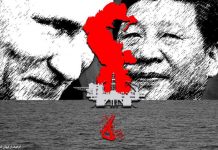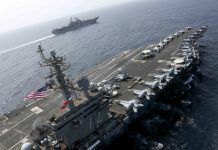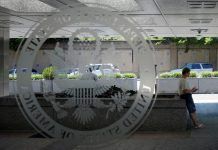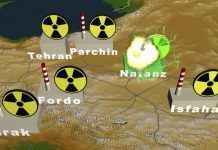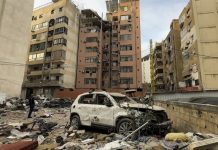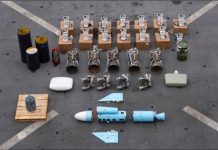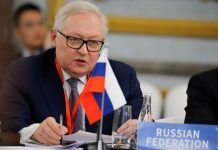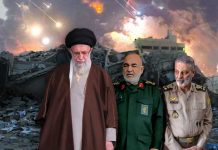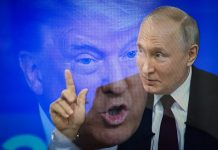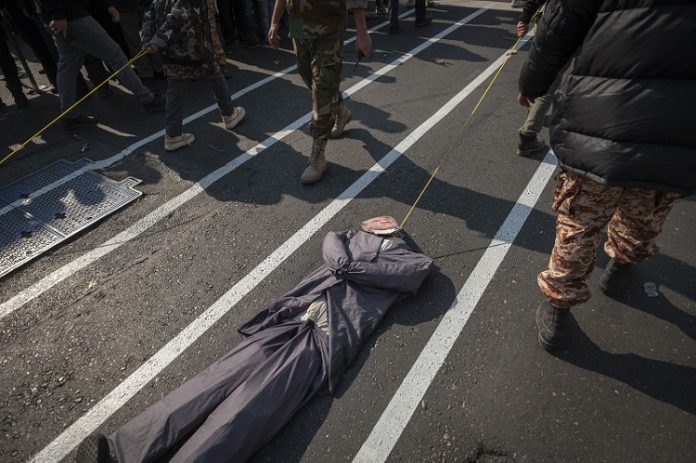
By Ahmad Rafat
Iran’s Supreme Leader Ali Khamenei has called on government officials to firmly reject any “demands from the United States and Israel under any circumstances.”
In a speech on Jan. 8 attended by senior Iranian officials, Khamenei criticized the views of some U.S. officials as “unjustified expectations” and cautioned his audience that “placing focus on U.S. interests undermines Iran’s democratic and republican values.”
Khamenei’s remarks reflect growing concern about Donald Trump’s return to the White House.
Many of Trump’s appointees and nominees — including Senator Marco Rubio, who is expected to become Secretary of State, and Mike Waltz, his pick for National Security Advisor — have taken a firm stance against the Islamic Republic of Iran.
Some political observers have recently speculated that increased diplomatic and economic pressure on Iran may fail unless it is backed by military action. Despite this, Trump has not commented on the possibility of military intervention.
In his most recent press conference on Jan. 7 at his Mar-a-Lago residence, Trump declined to address a reporter’s question about a potential preemptive strike on Iran’s nuclear sites, calling it a military matter and arguing that “only an idiot would provide an answer.”
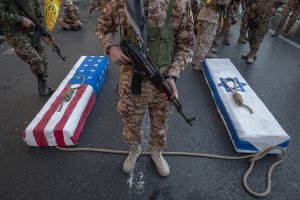
Many unofficial reports are claiming that Trump’s transition team has been developing plans for airstrikes on Iran if its nuclear program advances quickly.
In early January, Trump allegedly sent a covert message to Iraqi Prime Minister Mohammed Shia al-Sudani, part of which, according to sources close to the Iraqi premier, may have been directed at Iran. On Jan. 8, al-Sudani unexpectedly traveled to Tehran to convey Trump’s message to Iranian officials.
Although the precise details of the message are unclear, it is believed that Trump presented Iran’s leadership with a stern ultimatum: either negotiate to end the nuclear program or face severe repercussions, including the possibility of war.
Some of Khamenei’s remarks on the same day seem to be a reaction to this message, casting doubt on the success of upcoming negotiations in Geneva with the European powers (Britain, Germany, and France) scheduled for Jan. 13.
Given the timing, these talks are unlikely to yield progress, especially with Trump’s return to office on Jan. 20.
On the European front, there is increasing pressure on the Islamic Republic concerning its nuclear activities. French President Emmanuel Macron remarked on Jan. 6 that the Iran issue would be a significant focus during his first meeting with President Trump.
Iran’s Nuclear Programme Nearing Point of No Return, France’s Macron Says
Macron noted that European countries, as participants in the 2015 Joint Comprehensive Plan of Action (JCPOA), commonly known as the Iran nuclear deal, will have to decide by Oct. 18 whether to activate the “snapback mechanism.”
This mechanism would allow the United Nations Security Council to automatically reimpose international sanctions with no need for another vote, effectively dismantling the JCPOA and potentially leading to further international isolation for Iran.
Macron considers Iran a significant security threat to Europe and the Middle East.
The influence of the Islamic Republic has been significantly reduced because of the collapse of President Bashar al-Assad’s regime in Syria, setbacks faced by Hezbollah in Lebanon, and heavy losses suffered by Hamas and Islamic Jihad in Gaza.
Iran’s proxy forces are now struggling in areas like Yemen and Iraq, and they can no longer play a dominant role in Iran’s official or unofficial negotiations with the West or regional nations.
Israeli Military Says Commandos Raided Missile Plant in Syria in September
In this context, we must consider Israel’s stance on Iran. Israeli Prime Minister Benjamin Netanyahu is one of the few leaders still advocating for regime change in Iran. However, Israel is unlikely to pursue such a policy without U.S. support. Netanyahu hopes to secure backing from Trump for military action against Iran, potentially leading to the overthrow of its regime.
Recently, however, Trump shared a video on his Truth Social platform featuring American economist and Columbia University Professor Jeffrey Sachs, who referred to Netanyahu as a “deep dark son of a bitch” and accused him of attempting to drag the U.S. into a war with Iran.
Some have interpreted Trump’s decision to repost Sachs’ interview without comment as a sign of his opposition to military intervention or regime change in Iran.


